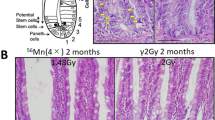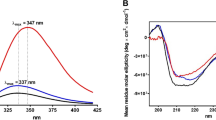Abstract
THE sensitivity of oxyhæmoglobin to oxidation with nitrites or ferricyanide is increased in children, pregnant women and patients with carcinomata (refs. 1–4 and preceding communication). The change-over from the increased sensitivity of childhood to the adult reaction occurs at about the age of puberty. To investigate the relationship between this reaction and the hormonal changes of puberty, the phenomenon has been studied in rats, as the growth-rate and pubertal changes can be determined and separated much more readily in small mammals than in man.
This is a preview of subscription content, access via your institution
Access options
Subscribe to this journal
Receive 51 print issues and online access
$199.00 per year
only $3.90 per issue
Buy this article
- Purchase on Springer Link
- Instant access to full article PDF
Prices may be subject to local taxes which are calculated during checkout
Similar content being viewed by others
References
Keohane, K. W., and Metcalf, W. K., Phys. in Med. and Biol., 5, 27 (1960).
Keohane, K. W., and Metcalf, W. K., J. Anat., 94, 454 (P) (1960).
Metcalf, W. K., Proc. Anat. Soc. (July, 1960).
Metcalf, W. K., Phys. in Med. and Biol., 5, 259 (1961).
Author information
Authors and Affiliations
Rights and permissions
About this article
Cite this article
METCALF, W. Experimental Oxidation of Hæmoglobin: its Relation to Growth-rate in Rats. Nature 190, 543–544 (1961). https://doi.org/10.1038/190543b0
Issue Date:
DOI: https://doi.org/10.1038/190543b0
Comments
By submitting a comment you agree to abide by our Terms and Community Guidelines. If you find something abusive or that does not comply with our terms or guidelines please flag it as inappropriate.



